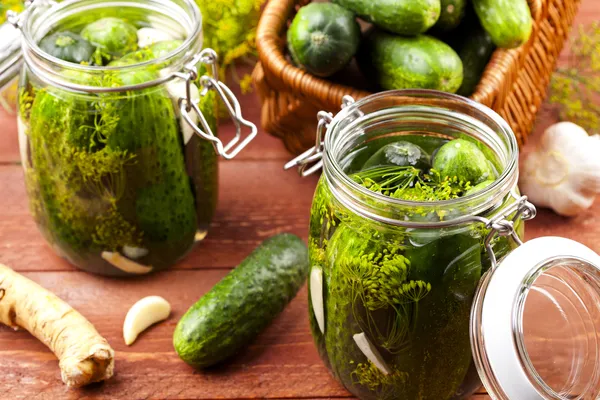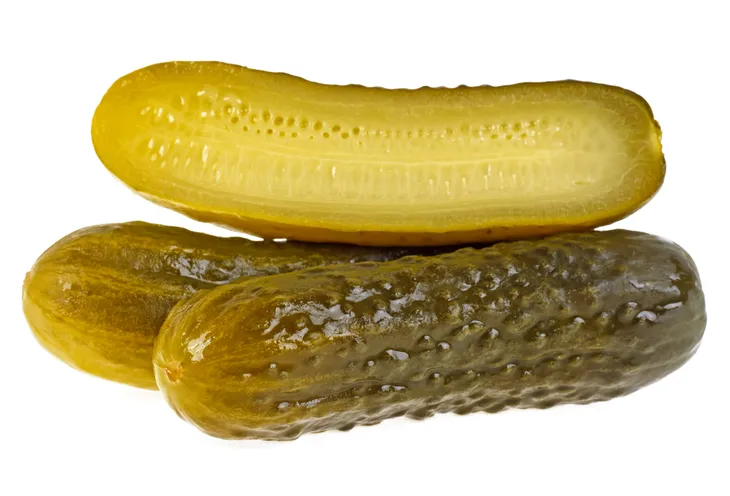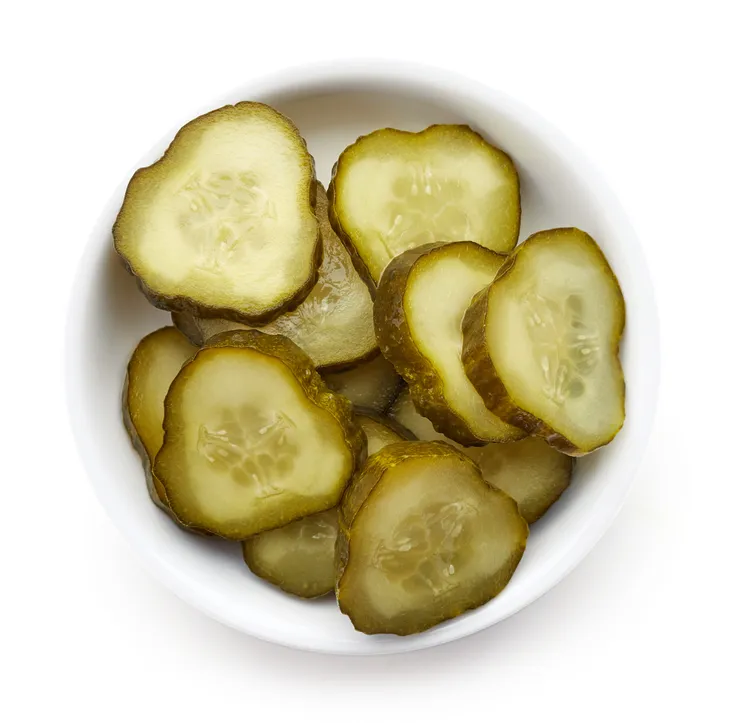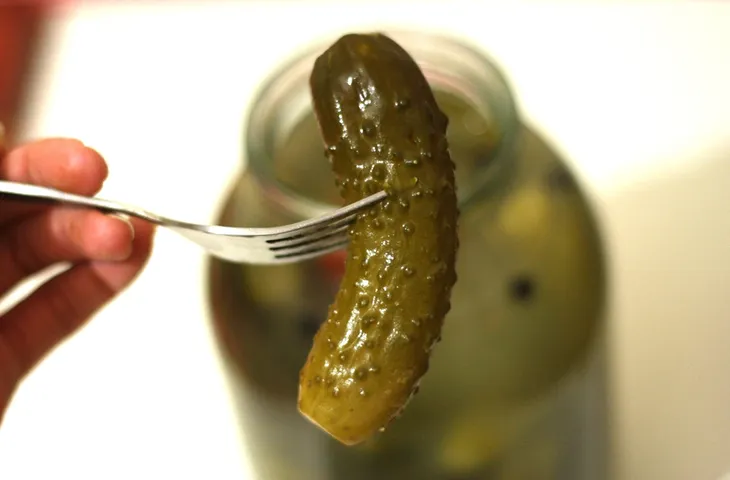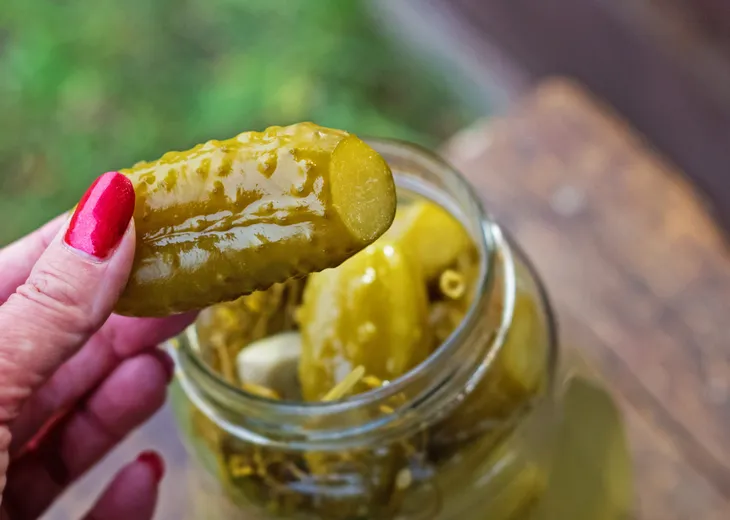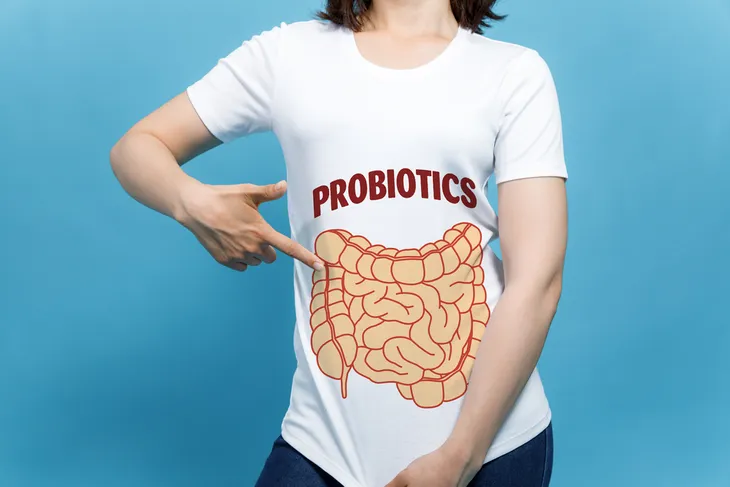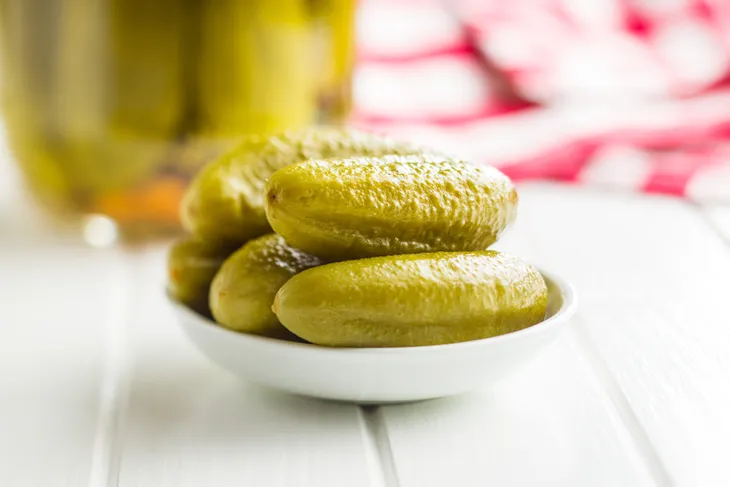Pickles are a food that people either love or hate, and those that love them, really love them! I’m talking about eat them straight from the jar kinda love. While pickles aren’t necessarily the first food that comes to mind when talking about ‘health,’ and that’s mainly because they’re so high in sodium, but when eaten in moderation, they’ve got some pretty great benefits. They were once cucumbers, after all!
We’ve compiled a list of some of all the incredible health benefits that can come from eating pickles. Enjoy!
Lots of Antioxidants
When looking for healthy food, we want foods that are rich in antioxidants. Healthline points out that pickles contain the same antioxidants as all fruits and vegetables which means they can boost our antioxidants and help our body fight against free radicals. “Free radicals are unstable chemicals that form naturally in the body and are linked to problems such as heart disease and cancer,” writes the source.
When it comes to antioxidant-rich foods, it’s best to eat them in their raw state or through fermentation. Healthline says cooking foods can break down “heat sensitive nutrients, including antioxidants,” and that “pickling raw vegetables and fruits preserves their antioxidant power.”
Improve Digestion
A lot of people suffer from uncomfortable digestive issues. Sometimes it’s just a matter of eating more fiber and rebalancing those bacterial cultures in the gut. Thankfully, pickles can help with that! “While vinegar helps slow the growth of bacterial colonies, left long enough probiotic bacteria will grow on this fermented food. Plus, pickles by themselves are prebiotic in nature, so you can eat it anytime you want and not only after it is aged,” writes Natural Food Series.
Foods that are high in fiber are known for helping keep the digestive system healthy and regular. So go ahead, eat some pickles!
Soothe Muscle Cramps
Pickle juice has been touted as a remedy for muscle cramps, but is it just an old wives tale? According to a study published in Medicine & Science in Sports and Exercise, “dehydrated men experienced faster relief from muscle cramps after drinking pickle juice,” writes Healthline.
The study showed that all it takes is about 1/3 of a cup. The findings proved that pickle juice works better than if a person were to drink the same amount of water, or nothing at all. “This could be because the vinegar in pickle juice may help with rapid pain relief. Vinegar may help stop nerve signals that make tired muscles cramp.”
Fight Spleen Cancer
When it comes to cancer we’ll take any help we can get…even if it comes in the form of a pickle. According to a 2014 study, pickles may be able to help fight spleen cancer. The study found “that the probiotic content of traditional Japanese pickles were effective at combating spleen cancer in mice, which could lead to the development of new human cancer treatments in the future,” writes Bustle.
Source of Vitamin K
Vitamin K is one we don’t hear about all that often, but according to SF Gate, it’s actually important for helping our body clot blood and plays a central role in wound healing. The source also notes that just 1-cup of pickles contains 27-micrograms of vitamin K which is a third of the daily recommended amount for women and a fifth of the daily amount for men!
What’s Good expands on what SF Gate says by adding that vitamin K helps with “our bones’ absorption and use of calcium, and keeping that calcium out of our arteries.”
Lower Blood Sugar
There has been some research on whether vinegar is good for lowering blood sugar, and because pickles are typically made with vinegar, they could be used to help lower blood sugar. What’s Good cites a study published in the European Journal of Clinical Nutrition which found that “healthy people who consumed vinegar alongside white bread experienced significantly lower blood sugar spikes and felt more satiated than those who just ate white bread.”
The source also talked to Natalie Rizzo, M.S., R.D., who says there is also research that suggests vinegar can be useful for people with type 2 diabetes who need a little extra help managing their blood sugar.
To reap these blood sugar lowering benefits from pickles, Maggie Michalczyk, M.S., R.D.N. says to eat a pickle or two alongside a sandwich.
Good for Skin
The same source that points out how much vitamin K pickles have also states they are high in vitamin A. “Vitamin A helps your cells grow properly, so it’s important for processes ranging from blood cell growth to keeping your skin strong and healthy,” writes SF Gate.
While it may not be much, you can eat about 1-cup of sliced pickles to get about 200 units of vitamin A from pickles which is about 10-percent of the daily recommended amount for women and 7-percent for men. You don’t want to eat anymore than a cup of pickles a day because they’re high in sodium. Luckily, there are many other foods high in vitamin A that you can turn to after enjoying a few slices of pickle. (For more information, check out this article on Foods That Keep Your skin Looking and Feeling Healthy).
Lower Risk of Yeast Infections
This one is for the ladies…yeast infections are no fun at all. Most women will experience at least one in their lifetime and the symptoms are all kinds of uncomfortable. According to Natural Food Series, pickles could be a good way to lower a person’s risk of developing these infections and keeping them at bay. This is because pickles promote good probiotic bacteria (we’ll get into that more next).
“Yeast are a normal part of the vaginal microflora, but can overgrow and become pathogenic for any number of reasons. This is especially common following antibiotic therapy or scenarios that can adversely affect bacterial colonies, which are largely responsible for keeping the yeast in check,” writes the source. Pickles can help balance these colonies and keep yeast under control.
Good Source of Probiotics
You might have heard of probiotics before and how they’re good for our gut. That’s because they promote the good bacteria in our gut. What’s Good talked to Maggie Michalczyk, M.S., R.D.N., who says “fermented foods contain healthy bacteria that help to strengthen our gut and immune system.” She recommends eating fermented foods a few times each week to reap the health benefits.
The healthy bacteria in fermented foods is called probiotics which “helps maintain balance in the gastrointestinal system so our body can digest food properly and absorb the nutrients we need,” writes What’s Good.
Good for Eye Health
As we all know, it’s extremely important to keep our eyes healthy because they provide us with our vision! We need them to see and we only get one good set, if we’re lucky. Thankfully there are many things we can do to protect our eyes and some of them are pretty easy, like eating healthy foods!
The best foods to eat to maintain good eyesight are those that are high in vitamin A, like carrots and pickles! Well + Good says it’s especially important for people who work in front of a computer to eat foods high in vitamin A. An added bonus on top of good eyesight is that vitamin A rich foods are also good for the immune system!
Treat Restless Legs Syndrome
If you’ve never experienced restless leg syndrome, then consider yourself lucky. It’s extremely uncomfortable and often causes people to lose a lot of sleep. Restless legs syndrome, also referred to as Willis-Ekbom Disease is a disorder of the nervous system that basically causes this uncomfortable urge to move the legs. It often happens at nighttime which is why it is also considered a sleep disorder, writes WebMD.
According to Cure Joy, pickle juice could be the solution to treating restless legs syndrome. The source suggests drinking a 1/4-cup of pickle juice before bed which should help relieve any symptoms of RLS including jerks, twitches, and leg cramps.
Ward Off Morning Sickness
You might hear of a pregnant woman cravings pickles or other unusual things like that, but they can actually help with morning sickness too. Natural Food Series explains that while it started out as a mystery why this food was so common for pregnant women, it’s actually because sour foods, like pickles, help ease the symptoms of nausea. As always, just be careful not to eat too many of this food because it is high in sodium. No more than one or two spears a day!

